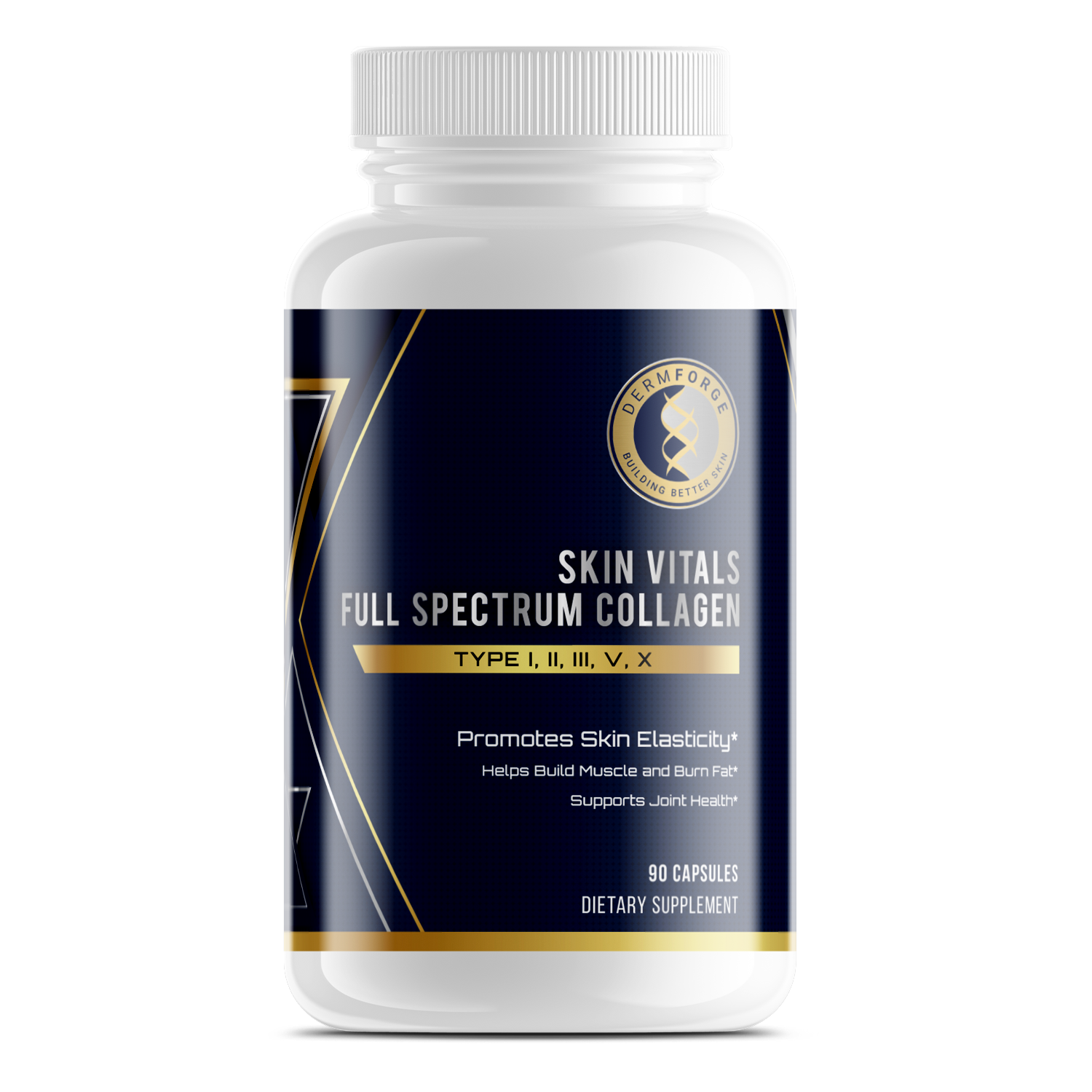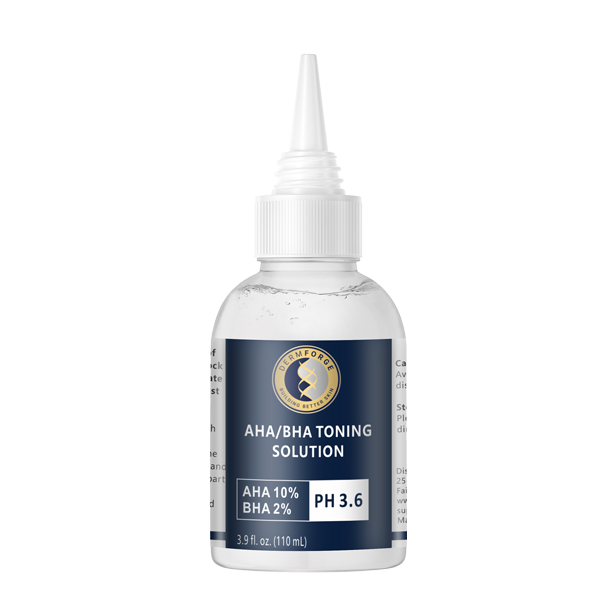Collagen plays a major role in how your skin looks and feels. It supports firmness, elasticity, and overall texture. Therefore, maintaining healthy collagen levels is a key part of skin rejuvenation. As you age, your body produces less collagen. This change leads to fine lines, sagging, and a duller appearance over time.
However, you can take steps to support collagen from both inside and out. Lifestyle choices, skincare routines, and nutritional support all play a part. Additionally, professional treatments offer deeper options when surface-level products are not enough. You don’t need to do everything at once. Instead, small, steady changes often bring the best results.
Many people start with simple shifts like wearing sunscreen or adding collagen-rich foods to their diet. Others explore serums, supplements, or in-office treatments. Therefore, your approach can evolve based on your goals and routine. You have more choices now than ever before, which makes it easier to get started.
Skin aging is a gradual process. However, consistent care can help you maintain a smoother, healthier look. Each step you take builds on the next. Whether you’re new to skincare or refining your current habits, focusing on collagen makes a difference. With time and consistency, your efforts can lead to real change.
The Role of Collagen in Skin Health and Aging
Collagen is a protein your body naturally produces. It gives your skin structure, elasticity, and firmness. When collagen levels are healthy, your skin appears smoother and more resilient. It holds your skin together and helps maintain its shape and texture.
However, collagen production slows down as you age. This decline usually starts in your mid-20s and continues over time. By the time you reach your 40s or 50s, your body may produce significantly less. As collagen breaks down, you might start to notice fine lines, wrinkles, and looser skin. These changes are common and often linked to aging.
Additionally, environmental stressors like UV rays and pollution can accelerate collagen loss. Smoking and a poor diet may also contribute to this breakdown. While your body works to repair some of this damage, the process slows with age.
Therefore, many people look for ways to support collagen from both inside and out. Supporting collagen production may improve skin texture and tone. Skin rejuvenation efforts often focus on rebuilding this foundational protein. Whether through topical treatments or nutritional support, collagen plays a central role.
You can’t stop the natural aging process, but you can take steps to manage how it affects your skin. Focusing on healthy habits and supportive skincare can help maintain a firmer, more youthful appearance. Understanding collagen’s role makes it easier to make informed choices about your skin. Keep in mind, every small effort counts.
Internal Collagen Support: Nutrients and Supplements
Your body builds collagen using nutrients you get from food and supplements. These internal building blocks matter more than most people realize. Collagen synthesis relies on several nutrients to stay active and productive.
Vitamin C plays a key role by helping form the structure of collagen itself. Without enough, your skin may appear dull or fragile. Additionally, zinc supports cell repair and regeneration, which keeps your skin in better shape. You also need amino acids like glycine and proline. These are basic units your body uses to form collagen strands.
Therefore, eating protein-rich foods helps provide those amino acids naturally. However, many people turn to collagen supplements to support daily intake. Marine collagen peptides are a popular choice because they break down easily and absorb well. You may find them in powders, capsules, or drinks. Additionally, hyaluronic acid helps retain moisture and gives your skin a plumper look.
These ingredients don’t work overnight, but many people see steady results over time. Therefore, consistent use is key to getting the most benefit. Supporting collagen from within helps improve texture and elasticity. This internal focus also pairs well with topical care for more complete skin rejuvenation.
You don’t need to overhaul your whole routine to get started. Small changes in your daily diet or supplements can make a real difference. Think of these nutrients as support tools, not magic fixes. When you focus on the basics, your skin often reflects that care over time.
External Boosters: Topical Skincare Ingredients that Build Collagen
Topical skincare can support your skin's natural collagen production. Certain ingredients work directly on the skin’s surface to trigger deeper activity. You can apply these products daily to reinforce your existing routine.
Retinol is a common option for stimulating collagen renewal. It works by speeding up skin turnover and encouraging cell repair. Therefore, many people use it to reduce fine lines and improve overall texture. Additionally, peptides are short chains of amino acids. These send signals that prompt your skin to produce more collagen over time.
Vitamin C serums also support collagen. They protect against damage while helping build new structural support in the skin. You may notice a brighter tone and smoother surface with consistent use. Growth factors are another tool. They help regulate repair and regeneration, especially when used in targeted serums.
However, results take time. These ingredients need regular use to be effective. Therefore, consistency matters more than intensity. Too much can irritate your skin or lead to dryness. Start slowly and build tolerance as needed.
Topical care works best when combined with healthy internal habits. Together, they support long-term skin rejuvenation. Keep in mind that results often show gradually. Over time, these external boosters can help restore firmness and reduce visible signs of aging.
You don’t need a complicated regimen to see improvements. Focus on proven ingredients and steady habits. With patience and care, your skin may respond with better tone, texture, and elasticity.
Professional Treatments that Stimulate Collagen
Professional treatments can support deeper collagen remodeling where topical products often cannot reach. These methods target the skin’s lower layers directly. While they vary in technique, most aim to trigger your body’s natural repair process.
Microneedling creates tiny controlled injuries on the surface of your skin. These micro-punctures stimulate healing, which boosts collagen production. Additionally, fractional laser treatments use heat to resurface the skin while encouraging structural renewal beneath. Over time, this may reduce lines, texture issues, and sun damage.
Radiofrequency treatments work by heating the deeper layers of skin without damaging the surface. Therefore, your body responds by tightening and firming the tissue. You may notice improvements gradually as collagen rebuilds. LED light therapy also plays a role in this process. Specific wavelengths of light can activate cellular repair and help support mild skin rejuvenation.
Most treatments require a series of sessions for lasting results. However, many people begin to see changes after the first few visits. These procedures often have short recovery times, depending on intensity. Therefore, they may fit well into your routine without major downtime.
You should speak with a licensed provider to determine which method suits your needs. Each treatment offers different benefits depending on your skin type and goals. Additionally, combining therapies with consistent skincare may improve results.
Over time, professional treatments can help restore firmness and reduce visible signs of aging. They don’t replace healthy habits but can support them. Think of these options as tools that build on your existing efforts.
Lifestyle Factors that Deplete or Protect Collagen
Collagen naturally declines with age, but lifestyle factors can speed this process. Daily choices influence how quickly your skin loses firmness and elasticity. You can protect collagen by reducing common habits that accelerate breakdown.
Sun exposure is one of the biggest threats to collagen. UV rays damage fibers and reduce your skin’s ability to repair itself. Therefore, using sunscreen and protective clothing makes a significant difference over time. Additionally, smoking restricts blood flow and introduces toxins that interfere with collagen production. If you smoke, your skin may age faster and appear less resilient.
Stress also plays a role. When stress hormones remain high, your body struggles to repair tissue effectively. Therefore, managing stress through rest, exercise, or mindfulness helps your skin too. Sugar has its own effect. High sugar intake contributes to a process that stiffens collagen fibers. As a result, your skin can lose elasticity and show lines more quickly.
However, positive habits can support your body’s natural defenses. Eating a balanced diet rich in antioxidants and protein supports collagen repair. Additionally, regular hydration helps maintain skin’s plumpness and flexibility. Exercise improves circulation, which brings nutrients to your skin. Sleep also gives your body time to restore tissue and build new collagen.
Over time, these small habits can protect your skin’s structure and improve texture. Supporting collagen through lifestyle choices works alongside treatments and products. Together, they help create long-term skin rejuvenation and a healthier appearance.
Market Trends and Innovation in Collagen Skincare and Nutricosmetics
The collagen market continues to grow as more consumers look for practical ways to support healthy aging. Both topical and ingestible products now offer targeted support for skin structure. As interest increases, new formulas are entering the space quickly.
Ingestible collagen, especially in powder and capsule form, has gained popularity for daily use. Many people take marine or bovine peptides as part of their wellness routine. Additionally, collagen drinks and gummies have expanded across beauty and nutrition categories. You may find them in stores or online alongside vitamins and protein supplements.
Biotech innovation has also shaped skincare formulas. Lab-developed peptides and growth factors now appear in creams and serums. These compounds support collagen-building from the outside. Therefore, consumers have more tools to manage the visible signs of aging. Some brands are also investing in cleaner sourcing and more sustainable packaging.
However, convenience still matters. Products that fit easily into a daily routine tend to gain more traction. Additionally, multi-function products appeal to buyers who want fewer steps in their regimen. Collagen products that support both hydration and firmness often meet this demand.
Skin rejuvenation remains a driving force behind this growth. You may notice brands using this concept to position their products. Over time, expectations have shifted from temporary effects to longer-term support.
As the market evolves, consumer awareness keeps rising. Therefore, brands that offer clear benefits and realistic claims may continue to outperform others. Whether through supplements or skincare, collagen continues to play a central role in personal care.
Conclusion
Supporting collagen is one of the most direct ways to care for your skin as it ages. While change takes time, consistent habits make a difference. You can combine nutrition, skincare, and professional treatments for steady progress.
Additionally, understanding what breaks down collagen helps you make smarter daily choices. Sun, stress, sugar, and smoking all contribute to faster aging. Therefore, avoiding these triggers supports better skin texture and structure over time.
However, support also comes from the inside. Nutrients like vitamin C, zinc, and amino acids feed the building blocks of healthy collagen. Marine collagen supplements are another option many people use to reinforce these efforts. Therefore, your diet can shape how your skin looks and feels.
Topical ingredients also matter. Products with retinol, peptides, and vitamin C help stimulate collagen near the skin’s surface. You may notice firmer or smoother skin after several weeks of regular use. Additionally, biotech-driven formulas now offer advanced support with simplified application.
Professional treatments go a step further. Microneedling, lasers, and light therapy reach deeper layers that creams can’t touch. These sessions often support skin rejuvenation in ways daily routines cannot.
Collagen loss happens slowly, but so does improvement. Therefore, the best results often come from a steady combination of small actions. You don’t need to try everything at once. Pick a few realistic steps and build from there.
Over time, your efforts can lead to stronger, more resilient skin. With the right habits and tools, you support long-term skin health while reducing visible signs of aging.






